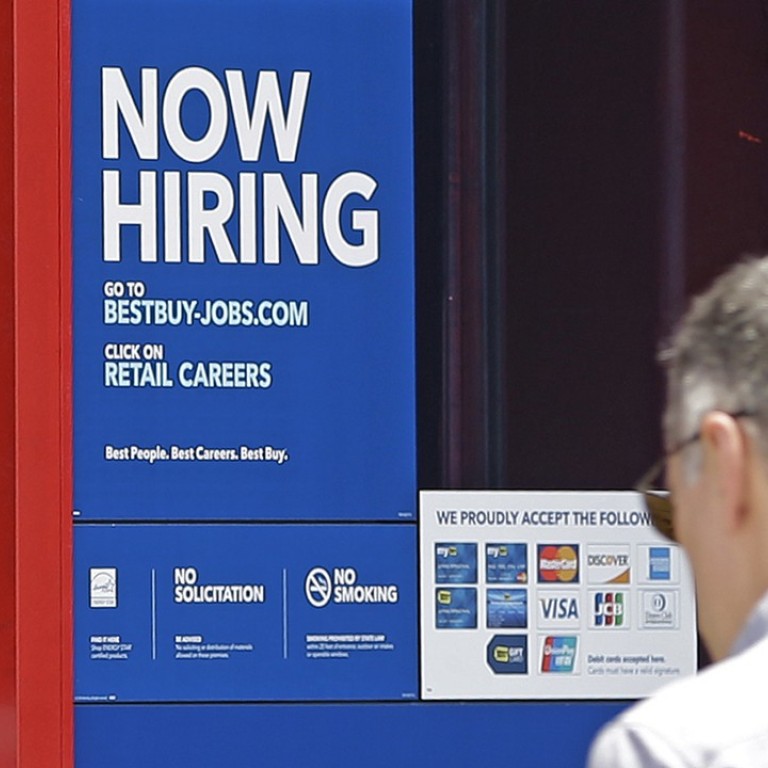
A former LinkedIn employee says these five resume tips can help you land a better job
LinkedIn’s former marketing director says general online applications are the least efficient method
Scoring a first job out of college is one of the biggest hurdles for young professionals. The next hurdle comes when it’s time move up in rank. At this point, employees are at the awkward stage where they have some entry level experience but have not yet reached mid-career.
Leela Srinivasan, CMO at recruiting software company Lever and former director of marketing at job site LinkedIn, says making that jump to more senior level positions is tied to your resume and work experience.
Here are five resume tips that 20-somethings should use to land a better job early in their career:
1. Find a contact at the company you’re applying to
When applying for your next job, don’t rely on a general online application because it’s the least efficient method, Srinivasan tells CNBC Make It . Out of all the various modes of applying to a job, only one in 100 candidates is ever hired, she says. For applicants applying through general applications, especially for larger companies, their odds drop to one in 152.
Srinivasan suggests finding a better way to engineer yourself into a company. One way is by being proactively sourced, which is when a recruiter reaches out to a candidate. Being sourced increases your chances of getting hired to one in 72, she says.
Yet the most efficient way to snag a better job is through an employee. referral The chances of getting hired through this method climbs to one in 16. “Clearly the most effective next step for someone seeking a promotion or a new role is so figure out who you know at the company,” says Srinivasan. “Referrals help you self-engineer your introduction into the HR inbox.”
In fact, referrals are almost 10 times more efficient at getting a candidate hired than sending in an application, according to Lever data.
2. Boost your online resume and cover letter
Your online resume and cover letter are just as important as your hard copy, says Srinivasan: “Linkedin remains an incredibly popular place for recruiters to get their next hire.”
Young professionals should fully optimise their online resume, detail their accomplishments and always have a fleshed out LinkedIn profile so it shows up in searches for recruiters.
Srinivasan points out that online resumes should be consistently up-to-date even if you’re not seeking a new job or promotion. Why? Because a vast majority of employees that recruiters reach out to are not actively looking for, or thinking about securing, a new job.
This means that your next new job or leadership role could come when you least expect it.
3. Highlight your leadership skills clearly
If you’re looking for a promotion to a leadership or management role, clearly express the experience you have and how it pertains to the position, says Srinivasan. “Do you have direct reports? Have you influenced a large group? Spell out that you’ve taken that next step in responsibility.”
She adds that applicants with less experience should detail how they have effectively led a group in prior positions and show that they have equivalent experience in some way.
Srinivasan says that it’s also important to cater your resume to the type of company you’re applying to. A startup, for example, will want a leader that’s more hands-on while a larger legacy company will expect you to be more strategic and tactical.
4. Navigate the online resume system by using keywords
Larger organisations typically use an online database to screen resumes, says Srinivasan. If an application has a list of required skills, it’s important to prominently display the skills that you genuinely have.
Oftentimes, recruiters and HR directors will search for keywords based on the job listing so if those keywords are not noted on your application, your resume will not be viewed.
Srinivasan gives the following examples of areas where you can insert relevant words: 1. Detail how you have executed or driven execution on a project. 2. Discuss your success stories and the role you played in a professional collaboration. 3. Explain how you make key decisions.
All the while, make sure that you are relating the experiences that you have back to the job advert, she says.
5. Include the human element to be memorable
Srinivasan says that although most companies using online application systems, it is important to remember that “you’re submitting your resume to a human” at the final stage. In a nutshell, find a way to connect with the hiring manager.
Srinivasan says a great way to do this is to include a line or two about your interests. When discussing interests applicants should go beyond the typical, such as “I like running and hiking.”
For example, if you’re someone who enjoys cooking, you should let the HR person know the extent of your interest. You can say: I enjoy cooking Indian feasts for large groups of my friends, she says.
Including this final “golden nugget” not only makes your content more memorable but it “injects a bit of character and creates a conversation starter in an interview,” says Srinivasan. “Always give them something to hang onto.”

